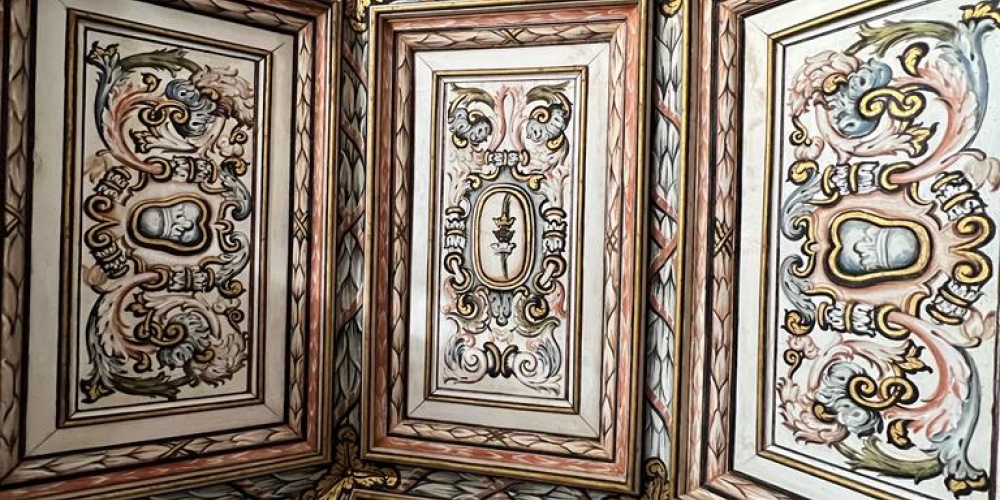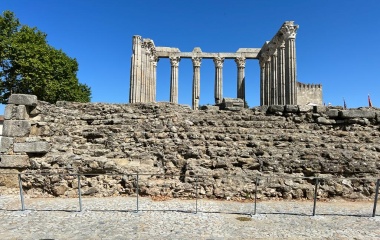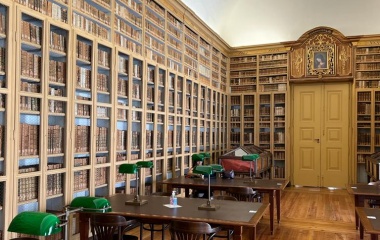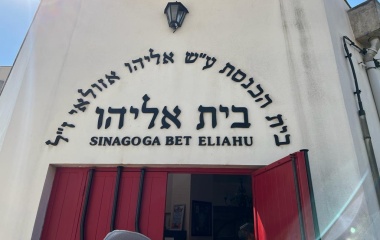
When one thinks of recent world powers, it is unlikely many would think of Portugal. But had we lived 500 years ago our thinking would be very different.
Jews had been living in these lands well before the “modern” day country of Portugal was established by the treaty of Zamosa in 1143.
The rise to world power in the 14th and 15th centuries was greatly abetted by the Jews. Fleeing to Portugal after the Spanish expulsion of 1492, Abraham Zacuto, already a famous mathematician and astronomer, was appointed Royal Astronomer to King John II of Portugal. In the 1470’s he had written – in Hebrew – Hachibur Hagadol, the great book, containing some 65 astronomical maps. These charts revolutionized ocean travel, allowing Portugal explorers to reach India and Brazil amongst other places and were used by Christopher Columbus. A Spanish translation of the original is housed in the library of Evora, but is unavailable for public viewing.
These maps may explain how Brazil became a Portuguese colony. In 1494 Spain and Portugal signed the Treaty of Tordesillas which basically drew an north south line in the middle of the Atlantic with Portugal getting all lands to the east and Spain to the west. Whether the Portuguese knew that the line they insisted on would incorporate Brazil, which sits at the eastern edge of South America, is unknown, but it is for that reason that Portuguese is the spoken language of Brazil.
As a Rabbi, Abraham Zacuto wrote Sefer HaYuchasin, a history of the Jewish people up until his time. This important work laid the foundation for later scholarly research on the Talmud and subsequent rabbinic authorities. Unsurprisingly for a medieval Sephardic rabbi, the book also discusses the history of science and the rise and fall of nations. It is in Sefer HaYuchasin where we read of the report of Rabbi Isaac ben Samuel of Akko regarding the authorship of the Zohar. Moshe de-Leon, a 12th century Spanish rabbi, claimed that he discovered a manuscript of the teaching of Rabbi Shimon bar Yochai, that work being the Zohar. However, Rabbi Isaac reported that the wife of Rav Moshe de Leon told him that there was no manuscript written by Rabbi Shimon bar-Yochai and it was Moshe de Leon himself who composed the Zohar. Zacuto himself rejects this story and hence relies on the Zohar for matters of halacha.
But as a Jew his contributions to Portuguese society meant little. Zacuto was one of the lucky few who managed to escape Portugal in 1497, eventually making his way to Jerusalem where he died in 1515. But his contributions have not been totally forgotten – neither in the Jewish world (though I imagine many have not heard of him) nor in the scientific. He is one of three rabbis to have a moon crater named for him; the others being the great philosopher Rabbeinu Levi ben Gershon, better known as the Ralbag (Gersonides), and the great biblical commentator, Abraham Ibn Ezra. The oldest standing shul in Portugal, dating from the 15th century and located in the beautiful town of Tomar is the Abraham Zucato Synagogue.
When Jews were expelled from Spain in 1492 the vast majority of those who left, somewhere between 50,000-100,000 people, came to Portugal. King Manuel l, the successor to King John ll, understood the economic benefits the Jews offered Portugal and warmly welcomed them – albeit just for a few short years. In medieval Europe – and things are not that different today – marriages are made for all kinds of reasons that have little to do with love. In order to solidify the relationship between Portugal and its neighbour Spain – countries that competed for world dominance in the 14th-16th centuries – and hoping to become King of Spain, Manuel married the daughter of Ferdinand and Isabella, the Spanish monarchs who had expelled the Jews. The condition of the marriage was that Portugal be 'purified’ and hence the Jews had to be expelled. In October 1496 the Jews were given 10 months to leave. When the time came to be expelled they were all brought to the shores of Lisbon from where they would be forced to leave. But this was a ruse. Instead of being expelled they were forcibly baptized and forced to remain in Portugal. They were too valuable economically to let them go but they could not remain as Jews. This has been the lot of the Jew for much of our history. At times we are not allowed to stay and at other times we are not allowed to leave.
Over the ensuing years many did leave and by the time the inquisition began in Portugal in 1536 many thankfully had left.
Both in Spain and Portugal there were many crypto-Jews who outwardly practiced Christianity but who secretly practiced Judaism. Due to the very different circumstances of these conversos, Rabbinic authorities took a much harsher view of the conversos of Spain, by and large viewing them as willing converts to Christianity. They could have, as many of their fellow Jews did, left but choose not to. Leaving was not at all easy – just think how you might respond if given three months to renounce Judaism or leave Canada (and Jews lived in Spain a lot longer than they have in Canada) unable to take any assets with you. Is it any wonder that many preferred staying hoping and expecting the decree to pass soon enough? The chief rabbi of Spain, Abraham Senior, was just one of many rabbinic figures to stay and at least outwardly convert.
The reason all have heard of Abarbanel – the most important rabbinic figure of Portuguese Jewry – is because he refused Ferdinand and Isabella’s offer to remain in Spain (born in Lisbon in 1437 he moved to Spain in the 1480’s) and be allowed to openly practice Judaism. It is because he choose not to do so, and instead left with his fellow Jews, that 500 years later he is considered one of the greatest of Biblical commentators.
--------------------------------------------------------------------------------------------------------------------------
[1] Many, perhaps the majority, either converted or feigned conversion, practicing as crypto-Jews. This in distinction to the Jewish communities of the Rhineland who, in response to the Crusaders, gave up their lives en-masse rather than convert to Christianity.



